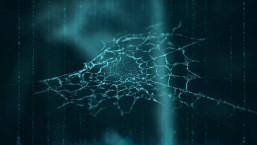The Department of Justice has announced that it is creating a dedicated cybersecurity unit, with an eye on prevention rather, reports Gizmodo.
The unit, which is a part of the Computer Crime and Intellectual Property section, will advise upon electronic surveillance, working with the private sector, law enforcement and congress in a bit to prevent online crime. "It is important that we address cyber threats on multiple fronts, with both a robust enforcement strategy as well as a broad prevention strategy," said Leslie Caldwell, head of the Department of Justice's criminal division, announcing the policy.
The LA Times reports that the cost of cybercrime has reached a level that the government can simply not ignore. Caldwell highlighted one example where two cyberattacks cost the global financial system $35 million in 'just a few hours': "Let me emphasize, that figure is not a speculative estimate or a projection. That is the sum total of money that the perpetrators withdrew from banks around the world by breaking into bank computers and removing limits on the amount of money they could withdraw from ATM machines."
It wasn't just the financial cost that Caldwell covered in her announcement, however, with a section dedicated to aspects 'less hard to quantify', such as privacy: "We have also witnessed the rise of another type of intrusion that causes harms less simple to quantify. Rather than stealing money or valuable financial data, these breaches have robbed people of their privacy. Some hackers have become virtual home invaders, using malware to tap into personal webcams located in homes around the world so they can spy on our most intimate moments. Other hackers have broken into online storage accounts and personal devices to snatch personal photos or communications for money or prurient thrills."
Re/Code reports that Caldwell stated the unit would "also help counter what she termed growing public distrust of law enforcement surveillance and high-tech investigative techniques." Caldwell puts this, in part at least, down to miscommunication "Most of this mistrust, however, comes from misconceptions about the technical abilities of the law enforcement tools and the manners in which they are used," she said.




